1. Quiet Hours Are Not Optional
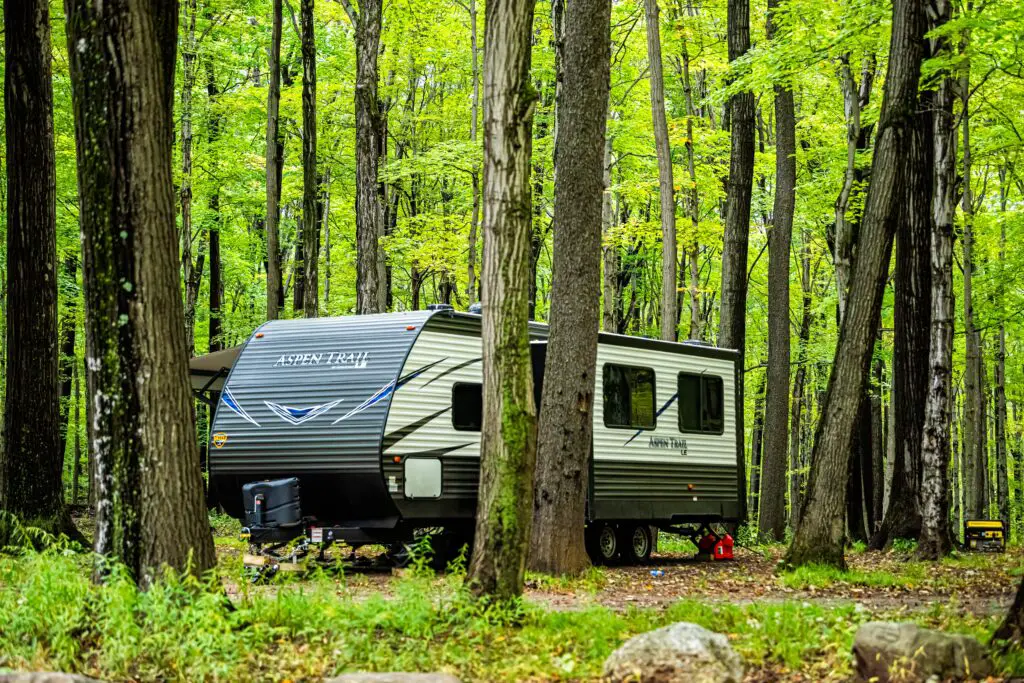
Every RV park and campground has posted quiet hours, and they’re not there as a suggestion. Whether it’s late-night music, loud conversations, or clanking tools, noise carries in the still air and disrupts everyone’s peace. RVers aren’t just vacationers—they’re often retirees, remote workers, or long-haul travelers looking for rest. Being noisy after dark isn’t just inconsiderate—it makes you that neighbor.
Keeping it quiet doesn’t mean you can’t have fun, but it does mean using discretion. Invest in headphones, soft-close doors, and keep music at a respectful volume. If you wouldn’t want to be woken up at 11 p.m., don’t risk doing it to someone else. The community thrives when people act like neighbors, not nightclub owners.
2. Don’t Hog the Best Spots
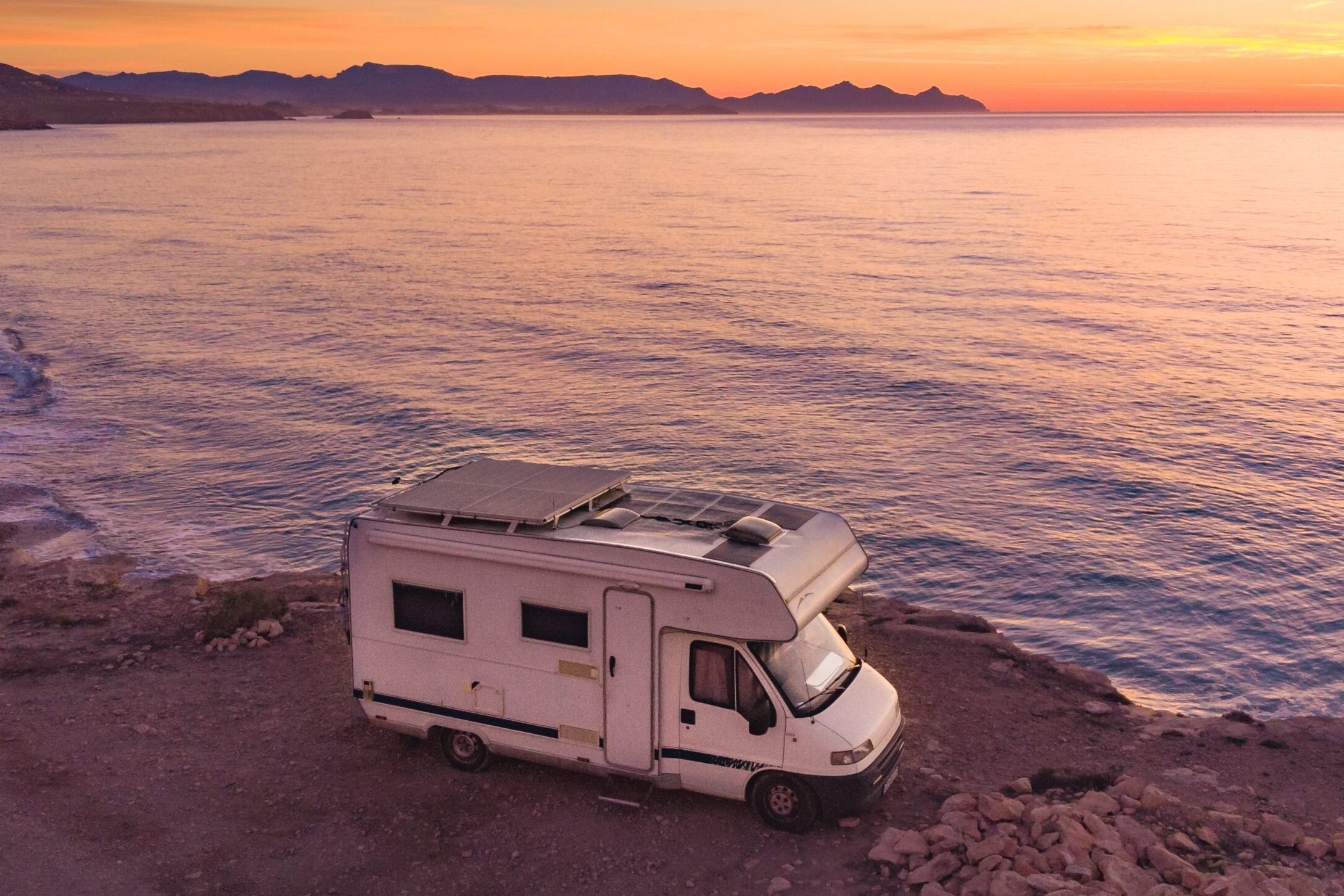
Camping etiquette starts with taking only what you need. Spreading your gear over multiple sites or stringing out chairs to block the best views is a surefire way to annoy others. Just because you got there early doesn’t mean you’re entitled to extra space. Campsites are communal resources, not personal kingdoms.
If you want more room, ask the host or book extra space legitimately. Over-claiming sites encourages others to do the same, creating chaos and resentment. Share the view, share the space, and keep the vibe welcoming. The more inclusive the experience, the better it is for everyone.
3. Clean Up After Yourself

Leaving trash behind is one of the fastest ways to ruin a campground for everyone else. From food wrappers to pet waste, litter attracts pests, spoils scenery, and disrespects nature. Even biodegradable items can cause problems or take months to disappear. “Leave no trace” isn’t just a slogan—it’s a baseline standard for RVers.
Before pulling out, give your area a final sweep and double-check for forgotten items. Teach kids to clean up too—it sets the tone for responsible travel. A clean campsite is a sign of a respectful traveler. Everyone deserves to arrive to a spotless, welcoming space.
4. Don’t Cut Through Campsites
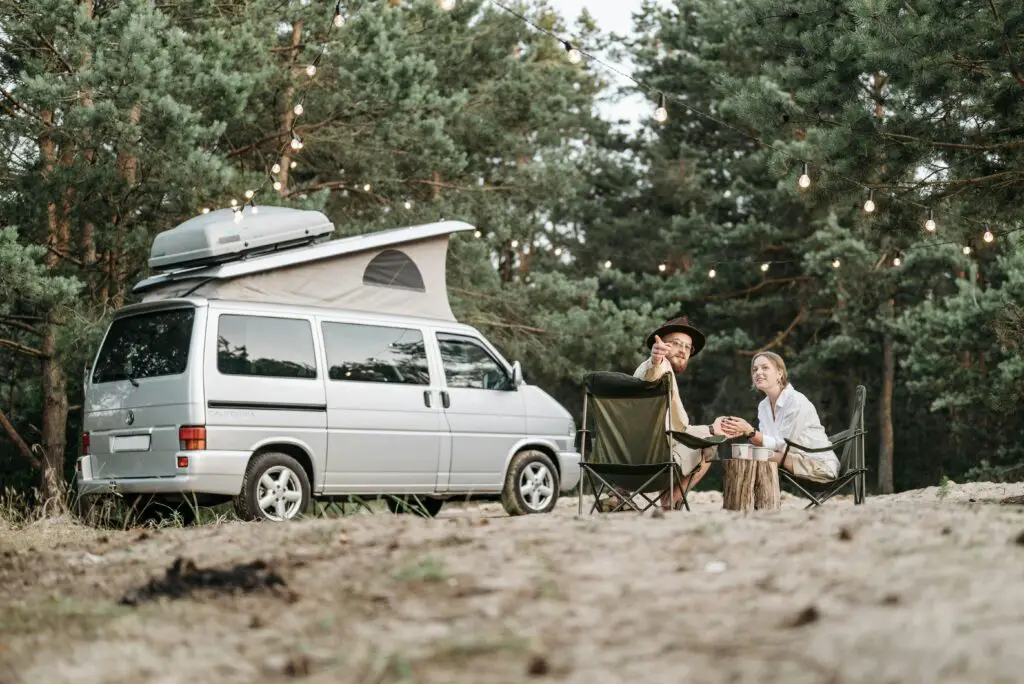
Campsites might not have fences, but that doesn’t mean they’re public walkways. Walking straight through someone’s site, even for a shortcut, is invasive and rude. It’s the RV version of walking through someone’s backyard without knocking. People pay for privacy—respect that.
Stick to roads, trails, or public spaces when getting around. Those extra 30 steps won’t kill you. If you’re unsure whether something is a path or a site, assume it’s someone’s personal space. Courteous movement helps preserve the campground’s peaceful atmosphere.
5. Mind Your Generator Use
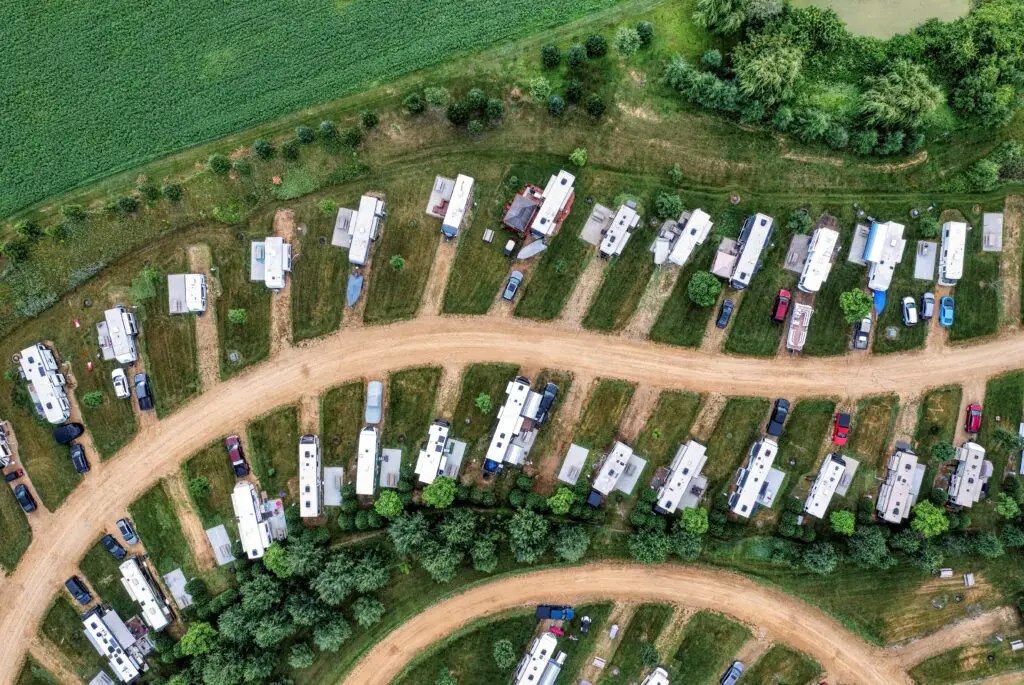
Generators are sometimes necessary, especially for boondocking, but overusing them can wreck the serenity of a beautiful setting. Loud, continuous humming can ruin the natural soundtrack of birdsong and crackling fires. Using them during quiet hours is a common complaint—and often a rule violation. Know when to use them and how long is too long.
Investing in a quiet generator or alternative power sources like solar goes a long way. Park far enough from others if you know you’ll need to run it more frequently. Remember, your power needs don’t override your neighbor’s right to peace. Silence still has value, especially in nature.
6. Don’t Park Like You Own the Lot
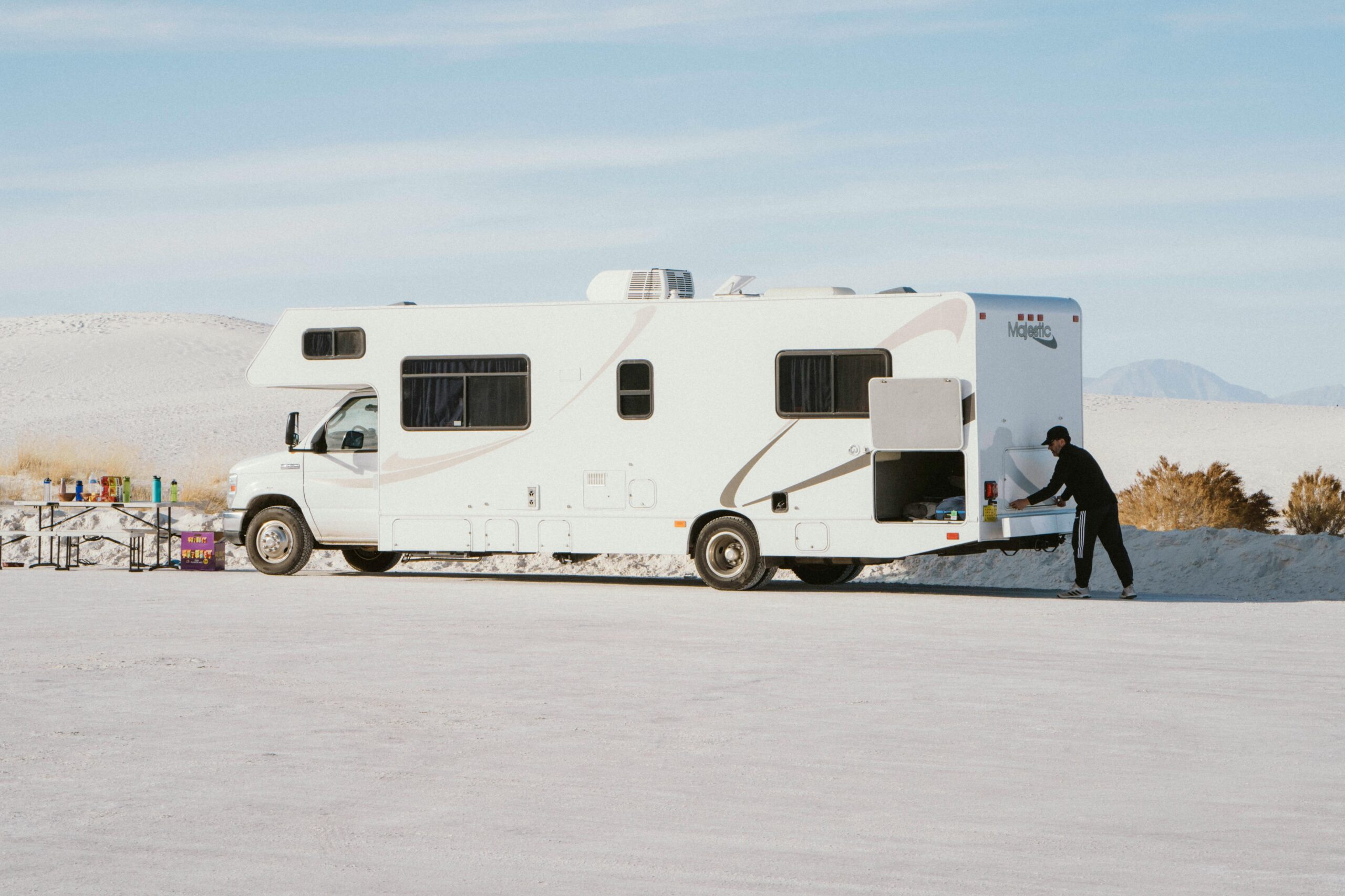
Poorly parked rigs can block driveways, limit maneuvering space, or force others into awkward positions. Just because you can fit doesn’t mean you should ignore lines or encroach on another’s setup. Parking well takes time, patience, and often, a second set of eyes. Sloppy setups scream entitlement.
Check your alignment and spacing before settling in. If your slide-outs or awnings stretch too far, reposition accordingly. Respecting space helps prevent minor inconveniences from becoming major frustrations. A well-parked RV shows you’re part of the community, not above it.
7. Respect Dump Station Etiquette
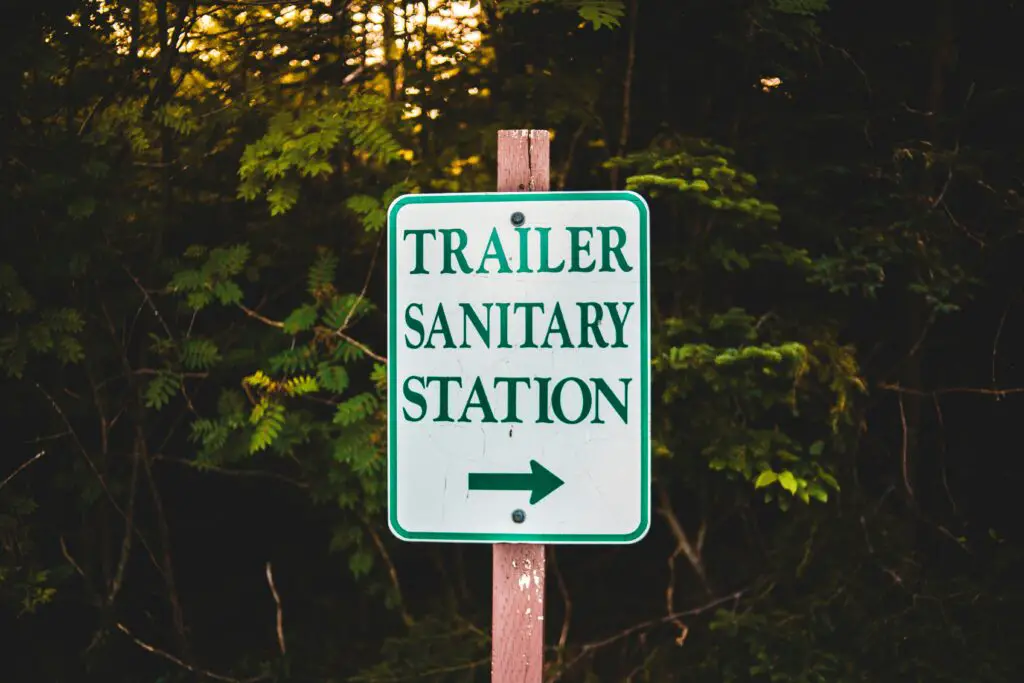
Dump stations are shared, often busy, and never anyone’s favorite stop—but that’s no excuse for laziness or disrespect. Leaving spills, not having your gear ready, or camping out while others wait is inconsiderate. Efficiency is key: arrive prepped and move quickly. The goal is to get in, get out, and leave no trace.
Wipe up spills and secure your hose connections. If you need extra time to rinse tanks or troubleshoot, wait until the line clears. Think of it like a public restroom—leave it cleaner than you found it. How you treat the dump station reflects how you treat the community.
8. Watch Your Campfire Behavior

A crackling campfire is a staple of RV life—but it only takes one careless person to put everyone in danger. Building massive bonfires, ignoring fire bans, or leaving a fire unattended is reckless. Smoke, sparks, and ash can blow into other people’s sites. Worse, it only takes one ember to start a wildfire.
Use approved fire rings and keep the flames low and manageable. Have water or sand nearby to extinguish fires completely. Smoky fires, especially from wet wood or trash burning, should be avoided altogether. Responsible fire use protects lives, property, and the land we all share.
9. Don’t Let Pets Run Wild

Pets are part of the RV lifestyle for many, but letting them roam off-leash causes more problems than you think. Uncontrolled dogs can be loud, aggressive, or disruptive to others who may not be pet lovers. Wildlife can also become targets—or threats—when pets aren’t contained. Even the friendliest dog needs boundaries.
Leash up, pick up, and train your pets to be good campground citizens. If your dog is a chronic barker, consider moving to a less dense area or using bark-control training tools. Assume not everyone finds your dog as charming as you do. A well-managed pet makes the whole experience more enjoyable for everyone.
10. Help, But Don’t Hover
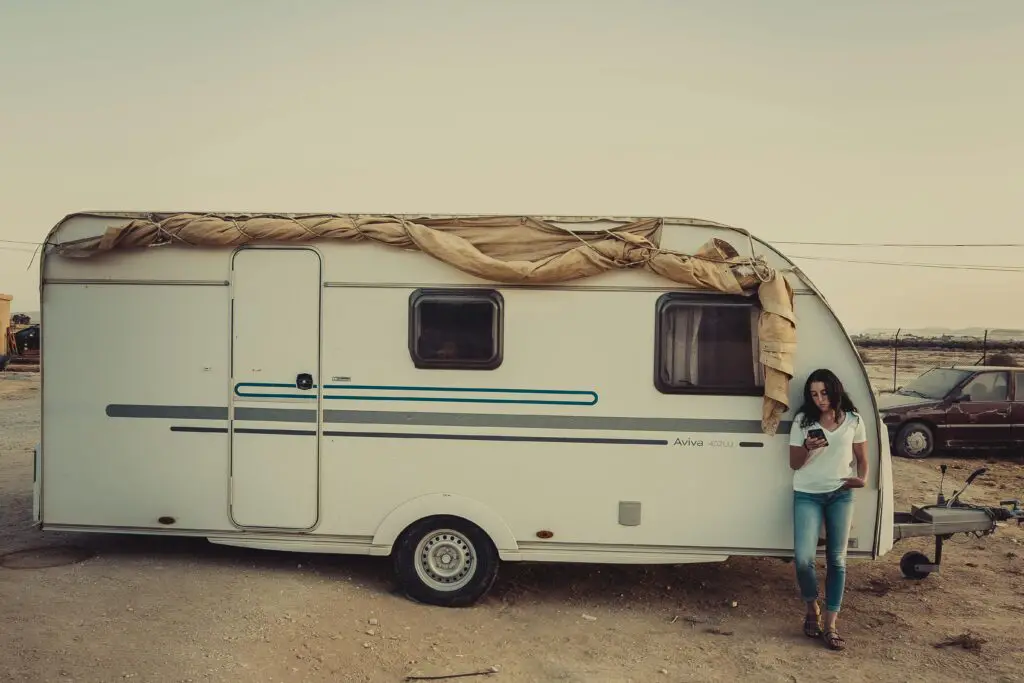
Offering help to a fellow RVer can be kind—until it turns into micromanaging. Unsolicited advice, excessive watching, or stepping in without being asked makes people feel uncomfortable. Many travelers are new and figuring things out at their own pace. Hovering around their setup isn’t helpful—it’s awkward.
If someone’s struggling, a friendly “Need a hand?” is plenty. If they decline, let them be. Respecting people’s autonomy is part of respecting their space. True RV community is built on kindness and restraint.
11. Don’t Dump Gray Water Just Anywhere
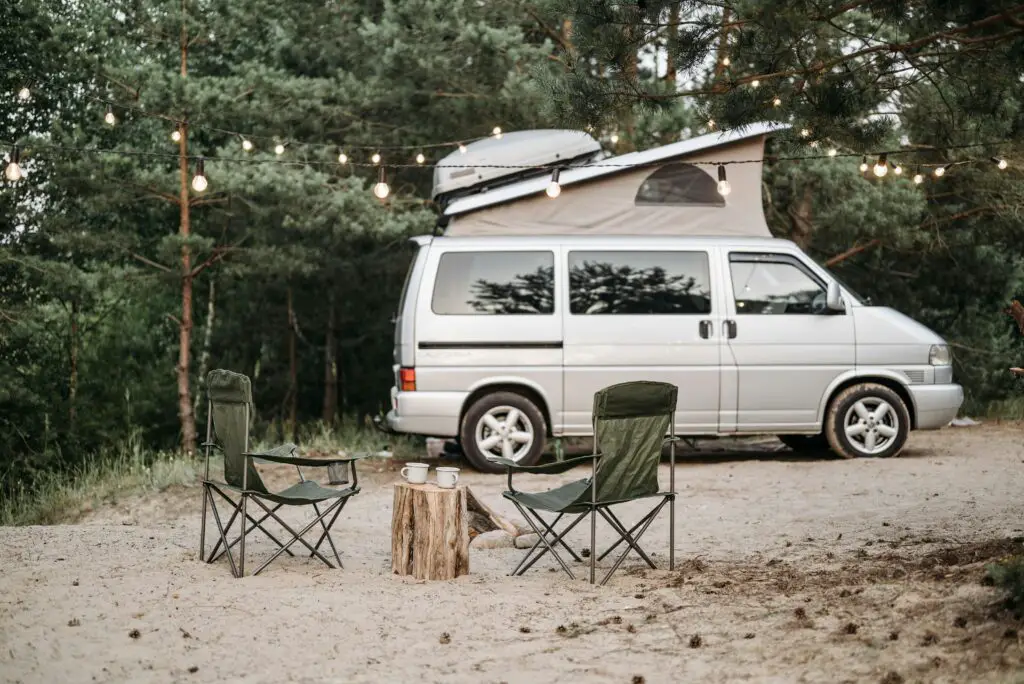
Dumping gray water in the bushes might feel harmless, but it can lead to contamination, foul smells, and campground bans. Gray water includes soap, grease, and food residue—not exactly things nature wants soaked into the soil. Most parks have rules against this practice, and they’re there for a reason. It damages the environment and can lead to fines.
Use dump stations or portable waste tanks to dispose of gray water properly. Even if you’re boondocking, look for sustainable solutions. Avoid dumping near trails, trees, or water sources. If you’re in nature, act like a steward—not a polluter.
12. Be Honest About Your RV’s Condition

Whether you’re renting out your RV, selling it, or letting a friend borrow it, honesty matters. Hiding leaks, electrical issues, or hidden damage is not only unethical—it can put others at risk. What might seem like a minor quirk to you could be a major problem for someone else. Full transparency is the only way to build trust.
Disclose any known issues clearly and provide accurate photos and documentation. If you’re unsure whether something matters—mention it anyway. The RV community relies heavily on good word-of-mouth and shared trust. One misleading transaction can damage your reputation and hurt the wider community.
13. Stop Treating Public Land Like a Trash Can

Boondocking on public land is a privilege, not a free-for-all. Unfortunately, more RVers are leaving behind trash, dumping tanks illegally, and damaging fragile ecosystems. These actions lead to closures, stricter regulations, and a growing stigma around RVers. The freedom of the open road comes with responsibility—not just convenience.
If you’re camping off-grid, pack out everything you pack in—including waste. Avoid creating fire rings where they don’t belong and don’t carve up land with off-road driving. Respect posted stay limits and leave the site better than you found it. Abuse of public lands is a fast track to losing access for everyone.
14. Don’t Expect Camp Hosts to Be Your Concierge

Camp hosts are there to maintain the site and assist when needed—not cater to your every whim. Treating them like personal valets or demanding constant attention crosses the line. Many of them are volunteers or working in exchange for a spot, and they deserve respect like anyone else. Asking questions is fine—expecting special treatment is not.
Before knocking on a host’s door at 7 a.m. for firewood or directions, consider checking posted info boards or park websites. Be polite, patient, and self-sufficient where possible. Hosts keep campgrounds running smoothly, but they’re not your customer service department. Respecting their time helps keep the entire operation stress-free.
15. Be Mindful of Light Pollution

Floodlights, porch lights, and bright LEDs might make you feel secure—but they ruin the experience for everyone around you. Nighttime at the campsite is supposed to be calm and star-filled, not lit up like a parking lot. Excessive lighting also disrupts wildlife and other campers’ sleep. If you’re concerned about safety, motion lights or soft amber bulbs are a better choice.
Turn off unnecessary lights before bed and avoid shining lights into neighboring windows. If you’re walking to the bathroom or checking your gear, use a headlamp or flashlight on the lowest setting. The night sky is one of the best parts of RV living—don’t drown it out. Less light means more serenity for everyone.
16. Don’t Treat Laundry Rooms Like Personal Closets

Shared laundry facilities in RV parks are communal, not private laundromats. Leaving clothes in machines for hours, using up all the detergent-scented dryer sheets, or hogging all the machines causes friction fast. These spaces work on a first-come, first-served basis and require common courtesy. Your time isn’t more important than anyone else’s.
Set a timer and return promptly when your load finishes. Don’t leave unfolded laundry on folding tables for others to deal with. If someone else left their load too long, move it respectfully—not out of spite. Consideration in these shared spaces keeps everyone’s routines running smoothly.
17. Keep Kids in Check

Campgrounds are fun for kids, but that doesn’t mean they get to run wild without supervision. Screaming, trespassing, and treating the site like a personal jungle gym irritate neighbors trying to relax. It’s your job—not the park’s—to set boundaries and ensure your kids respect others’ space. Kids are welcome, but they’re not exempt from basic campground etiquette.
Teach children to stay within your campsite and follow rules just like adults do. Consider quiet activities during early mornings and late evenings. Not everyone came to camp with children in mind, and that’s okay. A little parenting goes a long way toward keeping campgrounds family-friendly and peaceful.
18. Avoid Playing Territorial Games

Some RVers develop a habit of claiming spaces for their friends, family, or future plans—even when they’re not currently using them. This might mean blocking access with chairs, cones, or even spare vehicles. While it might feel smart or protective, it’s unfair to travelers who arrive looking for a spot and find everything “reserved.” Campgrounds aren’t private lots—you can’t call dibs on public space.
If someone isn’t occupying a site, it should be open to others unless clearly marked as reserved by staff. Holding spots without permission undermines the fairness that makes these spaces work. Everyone pays the same and deserves the same access. The RV community functions best when no one tries to game the system.
19. Don’t Blast Your TV or Outdoor Speakers

Watching a late-night movie under the awning or playing music while grilling can be great—for you. But your neighbor five feet away might be trying to read, sleep, or enjoy the sound of crickets. Loud TV audio or Bluetooth speakers ruin the outdoor vibe quickly. It’s one of the most common noise complaints in modern RV parks.
Use headphones or keep volumes at a level that can’t be heard past your own campsite. And skip the bass-heavy music unless you’re parked a mile away from everyone else. Communal living requires compromise. Respect others’ soundspace as you’d want them to respect yours.
20. Don’t Dominate Shared Amenities

Whether it’s the picnic area, fire ring, or dog park, shared campground spaces are meant to be rotated—not claimed indefinitely. Hosting a family reunion in the common area all day shuts out other campers. And letting your dog monopolize the entire off-leash area for hours isn’t fair either. Shared means shared.
Be mindful of how long you’ve been using communal features. If others are waiting, wrap things up or invite them to join in. Campgrounds are about community—not monopolies. A spirit of inclusion makes everything more enjoyable.
21. Don’t Arrive Late Without Warning

Rolling into a quiet campground at midnight with headlights blazing, engines roaring, and gear clanging is a major faux pas. Not only is it disruptive, it’s also inconsiderate to those already asleep. If you’re delayed, try to park quietly and avoid full setup until morning. Better yet, communicate with the campground or host ahead of time.
Night arrivals happen, but they don’t have to be chaotic. Use parking lights, keep voices low, and avoid slamming doors. Save slide-outs, leveling, and outdoor rugs for daylight. Considerate arrivals keep tempers and tensions in check.
22. Skip the Drama with Long-Term Guests

Some RV parks allow extended stays, but that doesn’t mean long-term guests should act like they own the place. Creating cliques, criticizing short-term guests, or enforcing your own set of rules undermines the community vibe. RV parks aren’t neighborhoods with homeowner associations—they’re shared spaces for travelers of all kinds. Seniority doesn’t give anyone the right to gatekeep.
Long-timers should aim to welcome—not judge—newcomers or weekenders. Everyone has a different reason for being there, and that variety is part of what makes the RV world unique. Set a positive example rather than fostering division. The more welcoming the environment, the healthier the culture.
23. Don’t Be the DIY Disaster Zone

Working on your rig is part of RV life—but turning your site into a construction zone is not. Sprawling tools, oil spills, and constant hammering cross the line from maintenance into nuisance. There’s a time and place for repairs, and it’s not when others are trying to enjoy their vacation. Tidy tools and a reasonable work window make all the difference.
If you’re doing heavy repairs, consider relocating to a less populated area or asking management where it’s appropriate. Avoid loud or messy jobs during peak quiet hours. Nobody wants to camp next to a mobile mechanic shop. Keep your tune-ups low-key and respectful.
24. Don’t Assume Everyone Wants to Socialize

The RV lifestyle often draws friendly, open people—but not everyone is in the mood to chat. Some travelers are escaping stress, decompressing, or simply enjoying solitude. Dropping by unannounced, lingering around someone’s campfire, or initiating long conversations without cues can wear thin fast. Friendly doesn’t mean intrusive.
Wait for social signals or invitations. A nod or brief chat is fine—pressing for deeper interaction isn’t always welcome. Respecting personal space is part of living well on the road. Everyone camps differently, and that diversity is something to embrace—not bulldoze.
This post 24 Unwritten Rules That Are Destroying The RV Community was first published on Greenhouse Black.
